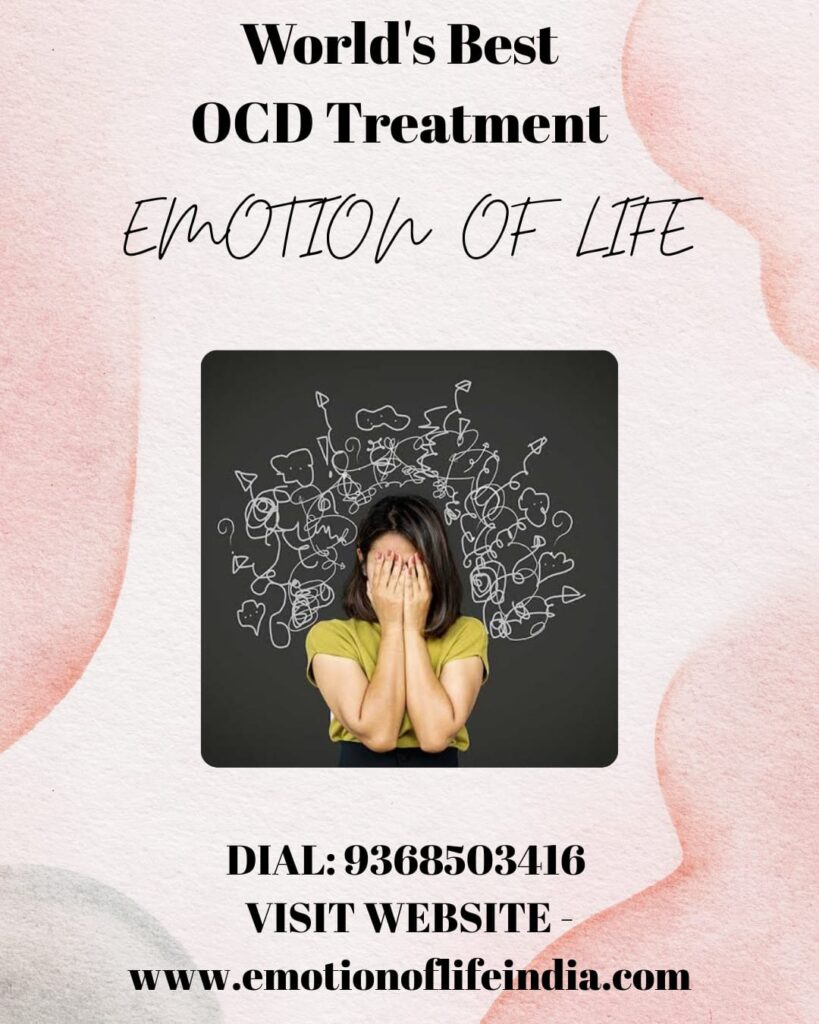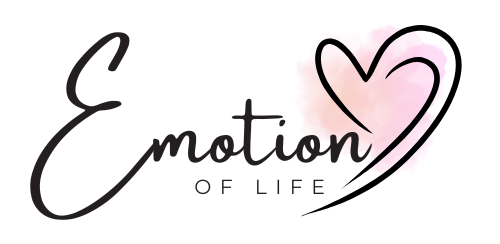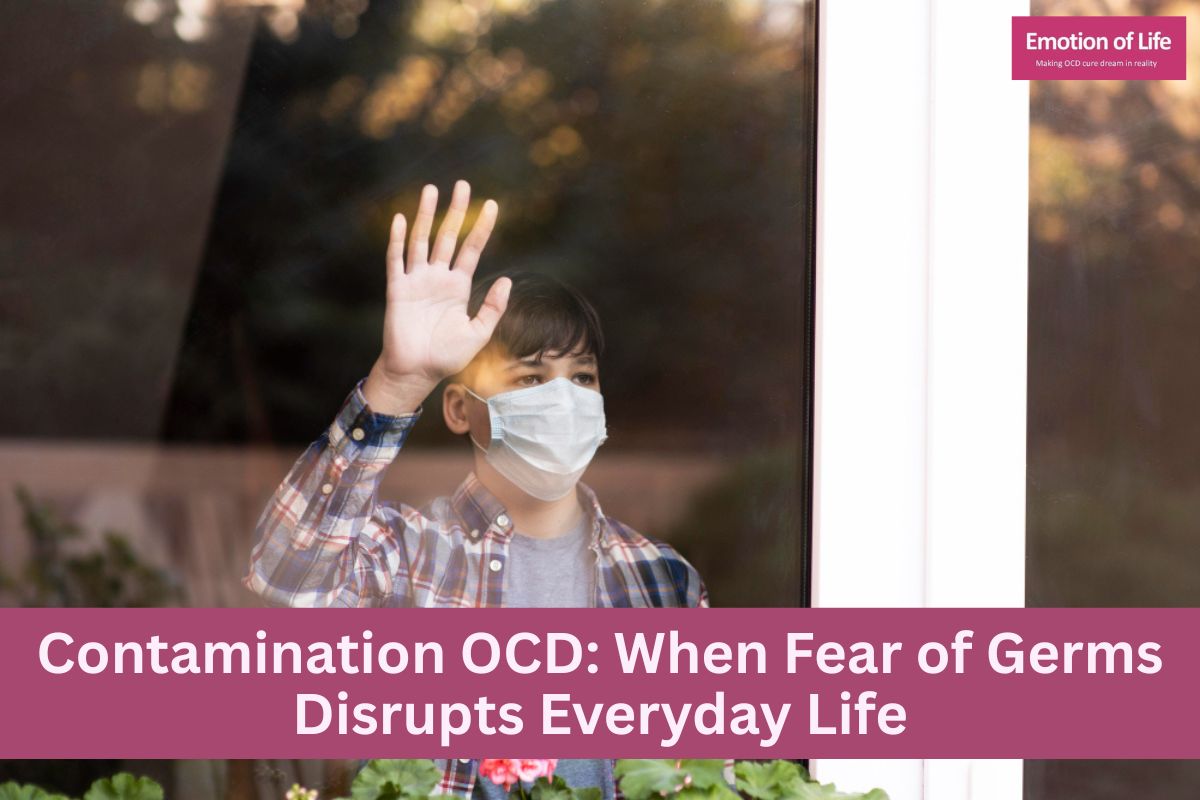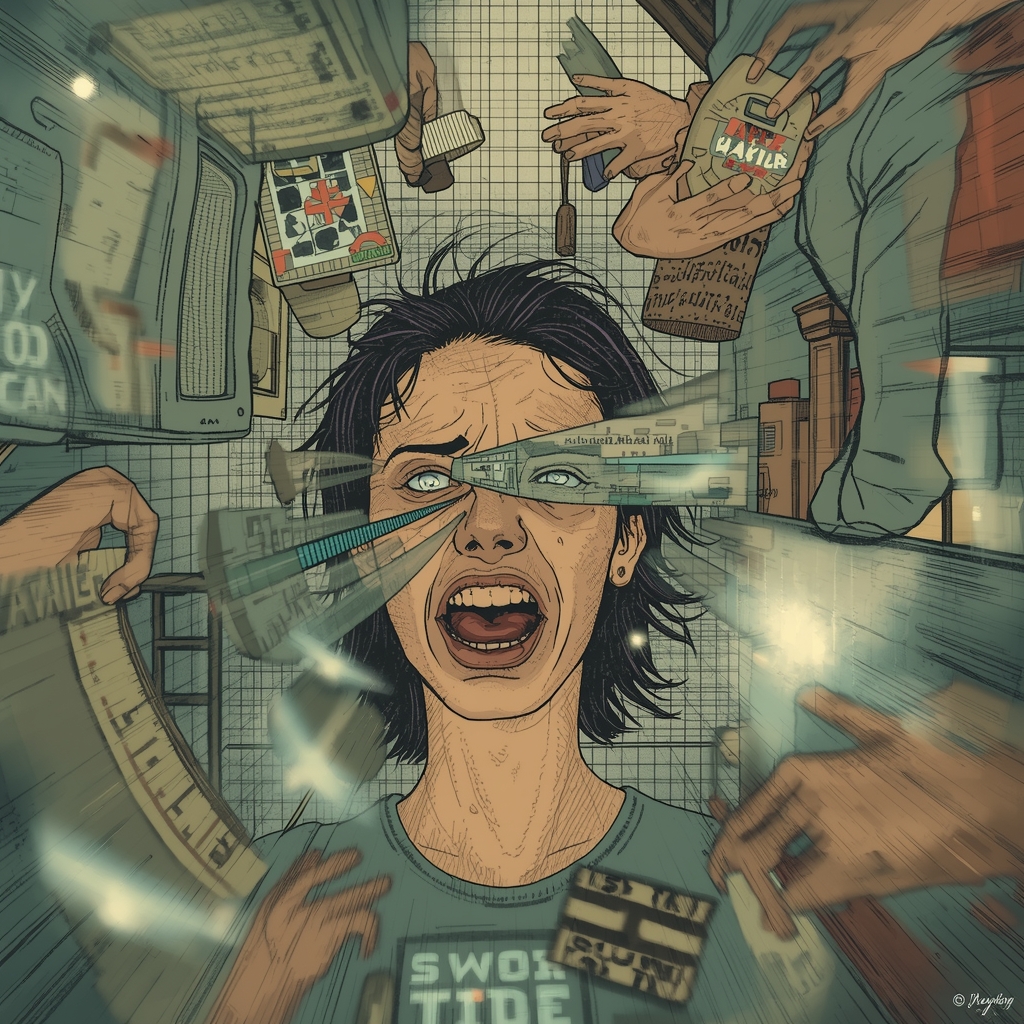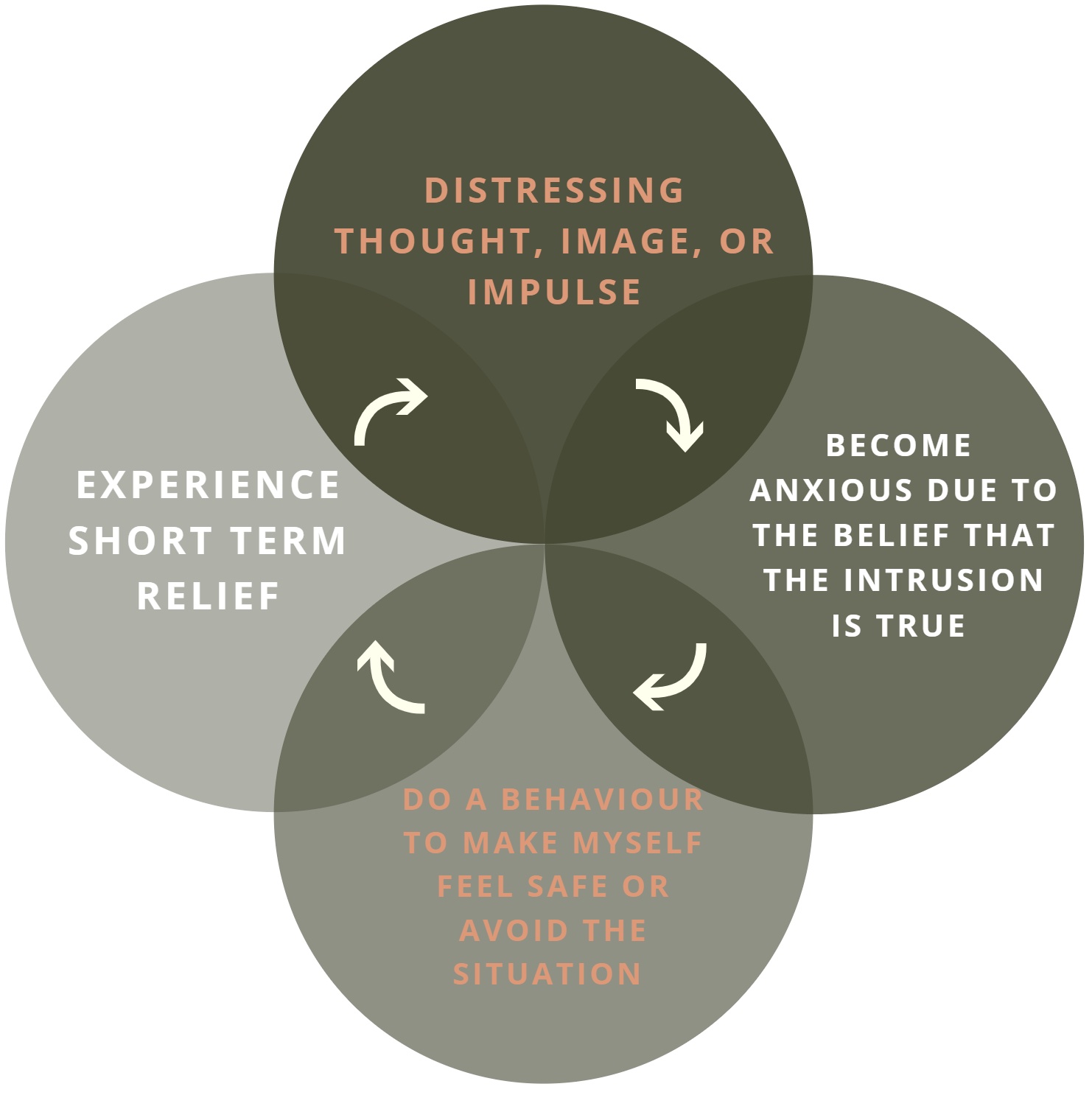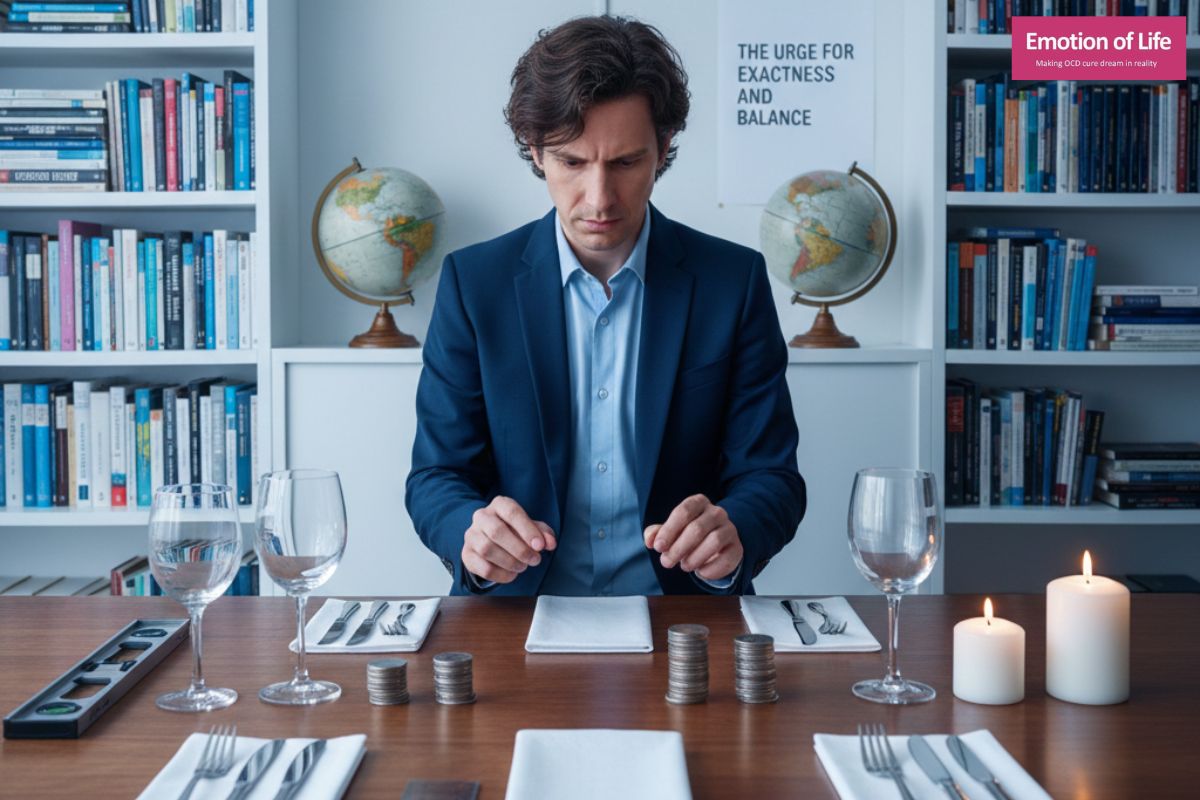Relationship OCD is a form of OCD where romantic relationships become the focus of repetitive fears, intrusive thoughts, and mental discomfort. If you have Relationship OCD you might find yourself constantly second-guessing your feelings, analyzing your partner’s qualities, or worrying about the future of the relationship—no matter how stable it seems. These fears often lead to compulsive actions, like asking for reassurance, checking your emotions, or searching for relationship advice online. Though these actions may ease tension for a moment, they often lead to more trouble in the long run.
Relationship OCD lies a deep fear of doubt. In matters of love, this lack of clarity can become emotionally exhausting. Relationship OCD can look different for each person, but most people experience it in one or both of the following ways. Worries About the Relationship Itself These thoughts often focus on the relationship’s entirety. You find yourself thinking:
- What if this isn’t real love
- Am I settling
- What if I’m missing out on someone better
- Do I really love my partner
- Is it really love or only attraction
- How I am sure I am love with her/him?
- Is it permanent love or I am feeling for now only?
- What if I lost my interest in my partner?
- What if my partner lost interest in me
- Why do they talk like that?
- Are they attractive enough for me
- Can I live with this flaw forever
- Is my partner really trustworthy?
- what if he or she is cheating with me?
- What if I might not be loyal towards my partner in the future?
- what if my partner is playing with my emotions?
- What if my partner leaves me for another better person
- What if I am not aware of the real character of my partner
- what if my partner is hiding something important that I should know
Relationship OCD, some people also deal with relationship-related jealousy, where the mind imagines scenarios involving betrayal or infidelity. Even if there’s no actual sign of cheating, thoughts like “What if they still love their ex?” or “What if they’re hiding something?” can become all-consuming.
The Emotional Toll of Relationship OCD:
Relationship OCD is more than just relationship anxiety—it’s a cycle that feeds on fear. The more you try to answer the “what ifs,” the deeper the doubts dig in. This constant loop can leave you feeling mentally exhausted, emotionally distant, and unsure of what’s real and what’s imagined.
Treatment Relationship OCD Naturally with CBT, ERP, ACT Therapy
To Treat Relationship OCD, the most effective approach for ROCD—without relying on medication—is a type of cognitive-behavioural therapy known as Exposure and Response Prevention (ERP). ERP helps people confront the thoughts they fear the most and learn to stop reacting with compulsive behaviours. Instead of trying to “solve” or get rid of scary thoughts, you learn how to experience them without panic or avoidance. This therapy has been proven to work well for all types of OCD, and it can be just as powerful when treating ROCD, Relationship OCD.
How ERP Works: ERP involves two key steps:
Exposure: You purposely face a thought, image, or situation that triggers your anxiety.
Response Prevention: You resist the urge to reduce your discomfort by using your usual coping tools—like reassurance-seeking, analysis, or emotional checking.
With time, your mind starts to realize that uncertainty can be handled without the urge to solve or fix it.
Relationship OCD Exposure Exercises:
Here are a few ways Exposure and Response Prevention (ERP) can be used to help manage ROCD:
Imagining uncomfortable thoughts on purpose. You might write or say something like I might never be completely sure if my partner is the perfect match. It’s possible I’ll always question whether I chose the right person. The goal here is not to convince yourself of anything, but to get more comfortable with uncertainty.
- Looking at photos where your partner doesn’t look their best
- Letting your partner do things that irritate you without correcting them
- Sitting with fears like “What if I fall out of love?” without trying to disprove them
- Reflecting on your partner’s previous relationships or picturing them with another person. These types of exposures help train your mind to feel discomfort without reacting to it.
Why Stopping Compulsions Matter in Relationship OCD
ERP doesn’t work unless you also commit to response prevention. That means stopping the habits that feel helpful but keep you stuck, like:
- Asking your partner, “Do you really love me?”
- Searching online for signs of a perfect relationship
- Mentally scanning your feelings to see if they’re “right”
- Comparing your partner to others
By resisting these behaviours, you teach your brain that you don’t need to act on fear every time it appears.
Learning to Trust Yourself Again in Relationship OCD
One of the hidden challenges of ROCD, Relationship OCD is that it slowly chips away at your confidence. You stop trusting your emotions, your decisions, and even your ability to love. ERP helps rebuild that self-trust by encouraging you to stop over-relying on external answers and start learning to sit with your inner experience—even when it’s messy or confusing. At first, ERP can feel scary. Letting go of compulsions may seem like you’re giving up control. But in truth, this is how real healing begins. By facing the thoughts, you fear and not acting on them, you build resilience, calm, and freedom from obsession. Over time, the thoughts lose their grip, and your connection to your partner—and yourself—begins to feel more natural and steadier.
- What is Relationship OCD (ROCD): Relationship OCD is a type of obsessive-compulsive disorder where a person experiences constant doubts, intrusive thoughts, or fears about their romantic relationship. These can include questioning whether they love their partner enough, whether their partner truly loves them, or if they are with the “right” person
- How is ROCD different from normal relationship doubts: Normal doubts come and go and don’t significantly disrupt daily life. In ROCD, doubts become obsessive, persistent, and distressing, leading to compulsive behaviours like constant reassurance-seeking, checking feelings, or comparing your relationship to others.
- Can ROCD be treated without medication:Yes. At Emotion of Life, we specialise in ROCD recovery without medication, using CBT (Cognitive Behavioural Therapy) and ERP (Exposure and Response Prevention). Our approach helps clients challenge obsessive doubts, reduce compulsions, and rebuild trust in themselves and their relationships.
- How long does it take to recover from ROCD: Recovery time varies for each person. With Emotion of Life’s 16-Step OCD Recovery & Cure Program, many clients see significant improvement within 3–6 months and achieve complete recovery over time, depending on their commitment and severity of symptoms.
- Will ROCD make me lose my relationship: ROCD can create stress in a relationship if left untreated, but with proper therapy, many people not only recover but also strengthen their relationships. Our program focuses on helping you manage intrusive thoughts and reconnect emotionally with your partner.
Success Stories
Relationship OCD Recovery at Emotion of Life
- Siddhu, 27, Mumbai – Breaking Free from Endless Doubts
Siddhu had been struggling with Relationship OCD for more than 5 years. Constant doubts about his partner’s loyalty and his own feelings created extreme anxiety. Traditional counselling hadn’t helped much. When Siddhu joined the OCD Recovery & Cure Program at Emotion of Life, guided by OCD Specialists Shyam Gupta and Pratibha Gupta, he began structured CBT and ERP sessions.
Within 10 weeks, Siddhu reported a drastic reduction in intrusive doubts. By the end of 5 months, he regained confidence, emotional stability, and a secure sense of love. Today, he lives with more clarity and enjoys his relationship without compulsive checking or reassurance seeking.
- Oshima, 34, Delhi – Regaining Trust and Emotional Freedom
Oshima came to Emotion of Life feeling drained after years of Relationship OCD – she repeatedly questioned her partner’s intentions, over-analysed texts, and feared breakups without reason. Through daily online sessions, Shyam Gupta and Pratibha Gupta worked with her on deep cognitive restructuring and exposure exercises.
Within three months, her checking and reassurance-seeking behaviours reduced by 90%. Now Oshima describes herself as “calm, secure, and emotionally available” in her marriage. She attributes her turnaround to the compassionate, science-based approach at Emotion of Life.
- Swetha, 29, Coimbatore – From Anxiety to Emotional Security
Swetha’s Relationship OCD left her feeling she was “never good enough” for her partner. Every disagreement felt like proof the relationship was failing. She joined Emotion of Life’s OCD Recovery and Cure Program, receiving daily online therapy sessions.
With systematic ERP, self-reflection exercises, and the supportive guidance of Shyam Gupta and Pratibha Gupta, Swetha learned to identify intrusive thoughts versus reality. Within 12 weeks, she stopped repetitive questioning, gained self-esteem, and began enjoying her relationship with newfound confidence.
- Tejaswini, Pune – Building a Healthy Relationship Mindset
Tejaswini had suffered from intense fear of abandonment and constant doubts about her fiancé’s love. Her Relationship OCD created unnecessary fights and emotional turmoil. Through Emotion of Life’s intensive online therapy program, she learned to face intrusive thoughts without reacting, practicing daily mindfulness and CBT exercises.
Guided by Shyam Gupta and Pratibha Gupta, Tejaswini built emotional resilience. Within 90 days, her compulsive behaviours disappeared, and she reports feeling “free, confident, and excited about her future” with her fiancé.
Client Reviews After Recovering from Relationship OCD
- Pranali from Guwahati
“Before coming to Emotion of Life, Relationship OCD was ruining my marriage. Within weeks of therapy with Shyam Gupta and Pratibha Gupta, my anxiety calmed, and today I feel secure and peaceful. This program is life-changing.”
- Hasan from Gulbarga
“I had almost given up hope of living without obsessive doubts about my partner. The daily sessions at Emotion of Life taught me how to break the cycle. I now trust myself and my relationship fully.”
- Comalike from Kolkata
“Relationship OCD had made me insecure and fearful. With the step-by-step approach at Emotion of Life, I found clarity, confidence, and love again. Highly recommend Pratibha Gupta to anyone struggling with ROCD.”
Why Emotion of Life Works
At Emotion of Life, we combine evidence-based CBT, ERP, and personalized wellness coaching to help clients recover from all forms of OCD — including Relationship OCD — without medication. Under the expert guidance of Shyam Gupta and Pratibha Gupta, hundreds of clients from India and abroad have reclaimed their lives.
Conclusion on Relationship OCD:
ROCD, Relationship OCD isn’t about whether your relationship is good or bad. It’s about how your brain reacts to uncertainty—and how you respond to that discomfort. With the right support, especially through ERP therapy, you can learn to stop fearing your thoughts and start living more freely. You don’t have to be completely certain to build a deep and meaningful bond. You just need the courage to sit with doubt and trust that it doesn’t define your truth.




